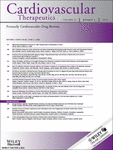Protection from Procedural Myocardial Injury by Omega-3 Polyunsaturated Fatty Acids (PUFAs): Is Related with Lower Levels of Creatine Kinase-MB (CK-MB) and Troponin I?
Summary
Objective
This study sought to investigate the effect of omega-3 polyunsaturated fatty acids (PUFAs) on cardiac biomarkers, CK-MB, and troponin I in patients undergoing PCI.
Background
Restenosis remains as a major long-term complication following percutaneous coronary intervention (PCI). It appears that there is strong relationship between post-PCI creatine kinase-MB (CK-MB) and troponin I elevation and cardiovascular events after PCI.
Methods
In this randomized clinical trial, a total of 90 patients planned to undergo PCI were randomly assigned into two groups: Group A–receiving omega-3 PUFAs (3 g, 12 h before PCI) plus standard treatment (n = 43) and Group B–control group, receiving only standard therapy (n = 47). Standard treatment included aspirin 325 mg and clopidogrel 600 mg loading dose. The plasma CK-MB level was measured before the procedure (baseline), at 8 and 24 h after PCI. The plasma troponin I was measured at baseline and 24 h after PCI.
Results
In comparison with control, omega-3 PUFAs could significantly reduce the level of CK-MB in 8 (P = 0.001) and 24 h (P = 0.012) after its prescription in the omega-3 PUFAs group. Omega-3 PUFAs could not significantly decrease troponin I.
Conclusion
Our results revealed that omega-3 PUFAs can be considered as a safe adjunctive medication to the standard regimen before PCI for the aim of decreasing cardiovascular event after PCI.




